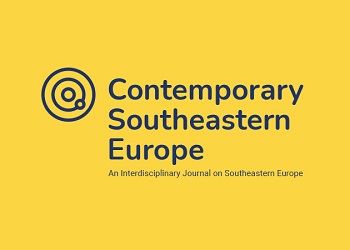The Politics of Euro-Balkan Police Cooperation in the 2000s
The Politics of Euro-Balkan Police Cooperation in the 2000s
Author(s): Olga KantokoskiSubject(s): Economy, Regional Geography, International relations/trade, Security and defense, EU-Accession / EU-DEvelopment, Corruption - Transparency - Anti-Corruption
Published by: Universität Graz
Keywords: Europeam Union;Western Balkans; organised crime; police cooperation;
Summary/Abstract: This article examines the political dynamics of Euro-Balkan police cooperation in the context of recent Balkan history. In the existing scholarship, the process of the ‘externalisation’ of EU-wide law enforcement cooperation outside the Union's geographic frontiers is widely considered to be a ‘functional-instrumental’ response to the menace of organised crime. Scholars believe that the functional rationale has been a primary driver behind the Union's endeavours to extend its governance of internal security to the EU's core strategic neighbourhood of the Western Balkans. Perceived in EU political discourse as a ‘stronghold’ of organised crime, in the 2000s this region acted as a major site for the Union's counter-crime initiatives. However, more detailed examination of the EU’s internal security collaboration in the Western Balkan region against the contrasting dynamics of organised crime reveals that Euro-Balkan cooperative initiatives were not functionally-, but rather politically-driven par excellence. In this article, the crucial period of 1999/2000-2010, when collaboration on internal security issues with the Western Balkan partners assumed major significance for the EU, is examined as an example of how political factors have been major triggers of the Union's anti-crime police cooperation with its Balkan neighbourhood.
Journal: Contemporary Southeastern Europe
- Issue Year: 8/2021
- Issue No: 2
- Page Range: 1-23
- Page Count: 23
- Language: English

